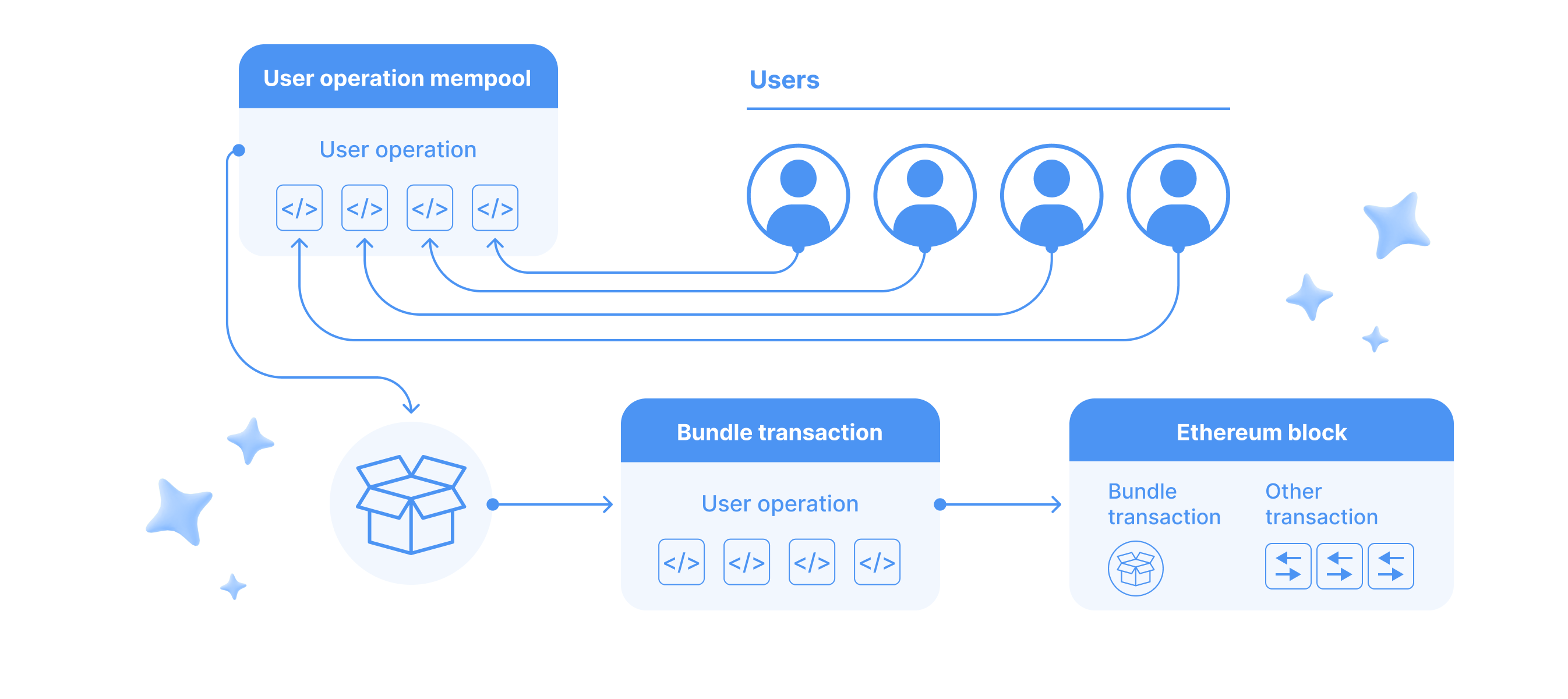Account Abstraction Explained

This blog post will cover:
- Account abstraction defined
- How does account abstraction function?
- What are the advantages of account abstraction?
- What are the drawbacks of the concept?
- Conclusion
While the concept of account abstraction originated in 2020, it remains relatively new for many of the crypto users. With ongoing discussions about it becoming a part of the Ethereum network soon, it is best to become familiar with this concept beforehand to be prepared.
This article explores this new concept and assesses its possible benefits for the Ethereum blockchain.
Account abstraction defined
Account abstraction is meant to improve the functionality and user-friendliness of Ethereum. By default, the network’s users must hold Ether to pay for gas and are able to initiate transactions only via externally owned accounts (EOAs) with the help of private keys. Such accounts essentially represent Ethereum accounts but they are created using external software (for example, MetaMask).
Account abstraction is going to transform the smart contracts we know today into top-level accounts responsible for both gas payments and transaction initiation. This innovation will give users and developers the opportunity to control their accounts directly on the platform, getting rid of the need for EOAs with private keys.
By definition from computer science, "abstraction" is something that simplifies complex ideas by focusing on more important elements and not paying attention to overcomplicated and unnecessary peculiarities. When it comes to account abstraction, it is about the coding that operates in the background, offering users a more straightforward interface.
How does account abstraction function?
Account abstraction is described in an improvement proposal to better the behavior of Ethereum accounts and their range of functions, particularly in terms of smart contracts. It is formally known as EIP 2938, and Vitalik Buterin is among the initial authors. They suggested creating specialized smart contracts responsible for defining and managing smart accounts.
These smart accounts can be customized by users to establish rules for actions like asset swapping between addresses or making payments in Web3 games.
The new technology will empower smart contracts to initiate transactions, set gas pricing and limits, as well as expand the validity conditions of transactions beyond the usual requirements. Various technical mechanisms are introduced to increase security and widen the range of functions, including features like replay protection.
On the protocol level, account abstraction streamlines transaction processing. It does so by introducing a "UserOperation" that acts as a pseudo-transaction, and these are initially stored in an "alt mempool." Nodes, known as Bundlers, pick up multiple UserOperations and bundle them into a single transaction, sending it to a global smart contract called the "EntryPoint." This contract then validates each operation's signature and processes gas fee payments.

Smart contract wallets must implement a specific function to execute these operations, making transactions more programmatic and reducing user reliance on private keys and manual processes.
What are the advantages of account abstraction?
The concept promises to improve the Ethereum platform in several ways:
- Flexibility: it provides a more programmable approach to the accounts, allowing for special rules and logic.
- Security: the available safety features include, account recovery, setting custom transaction limits, etc.
- User-friendliness: account abstraction hides coding complexities for the end users, and they do not have to deal with external services and private keys.
- Innovation: developers will get an opportunity to create innovative applications and services using smart-account wallets’ possibilities. This programmability of smart contracts can lead to new features, such as one-click operations, improved gaming experiences, and simplified purchasing processes.
What are the drawbacks of the concept?
Nevertheless, in its present-day form, account abstraction is not without its challenges. The drawbacks include:
- Incompleteness: as of September 2023, the idea exists in the form of a proposal, so it will take some time to prepare for the changes, test the mechanisms properly, etc.
- Complexity: implementing the innovation can overload the protocol and complicate the creation of smart contracts. This may potentially lead to increased risks of bugs because the technology is so new.
Conclusion
To sum up, the concept of account abstraction holds a lot of potential for the Ethereum network and the crypto industry on the whole. While this innovation comes with several challenges in its implementation, it promises improved security, user experience, and innovation – the most vital aspects of any crypto project.

